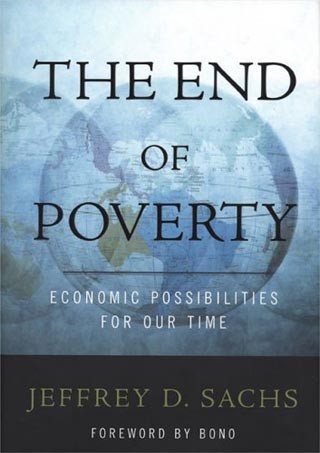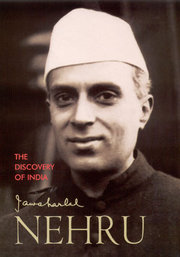


In my quest to quell boredom while flying (did quite a bit in the last 4 months), I read three books. Interestingly, they were all related to macroeconomics. These books and 2 talks, one by noted author and economist C.K. Prahalad and the other by the founder of Gramin bank M. Yunus, that I recently heard have me convinced of one thing. There are quite a few brilliant people deeply worried and spending a lot of think-time pondering about the reasons and solutions to global poverty.
The first book titled "The World is Flat" by NYTimes columnist Tom Friedman, takes the view that the problem of abject poverty can be traced back to the differences in opportunities from one set of people to another. The solution, hence, is the golden age of a "flat" world, where
individuals are players in a more or less level playing or flat field. The author's panacea to poverty is the triumvirate of better communications (internet and actual physical communication), financial and social openness in certain developing economies (read India and China) and better educated individuals. The book, very well researched and written, is an optimistic view of how development blooms once the conditions are right. Some of the details listed are quite stunning like how UPS actually repairs Dell computers. That's right, they don't just ship damaged PCs and laptops. They actually collect it, repair it and send it back to the customer. Who knew! Without adding much more, let me just encourage you to read this book if you already haven't.
The second book "End of Poverty" by reknowned economist Jeffrey Sachs is more academic and at the same time emotional literature. Jeffrey Sachs has spent the better half of his life guiding governments like those of Chile, Poland and Russia after the commies, etc. on how to save their economies. In all these cases his main role was to persuade third parties to pump in money and save the day. Now he presents his case why the world should be pumping in money into Africa and other poor countries of the world. He wants to do all this not through the traditional loans or aid with riders (more on that below) but with outright aid with no riders on it. The book presents some interesting facts but can be hard reading because of all the...facts in it! However his main point is taken. Money is needed to kickstart certain essential aspects of any functioning economy; for e.g. financial institutions capable of lending money so that businesses that can potentially employ get started.
The third book "Confessions of an economic hitman" by John Perkins is a book in a different mold. While it is bound to be a favorite among conspiracy theory hacks, quite a bit of it is simply too tough to believe. The basic premise is that John Perkins in his youth was hired by MAIN, a former Boston firm specializing in energy consulting (somewhat like Halliburton) as an economic hit-man. His job: give a rosy outlook for energy consumption in third world countries so that the United States promises aid much in excess of what the country can ever pay back. If you did not know, aid is much more than money handed out. The usual rider is that the money has to be spent on specific projects and the purchasing has to be done from the donor country. So, if a country receives aid for energy projects from the U.S., companies like MAIN got the money not just to do a pre-investment check but also to do the building. Once the project was finished the country usually discovered that it never needed that big a project and of course cannot pay back, leading it to become economically and politically dependent on the donor country. The "beauty" of the system is that money lent to a country is usually collected from financial institutions in the United States and money spent on the projects is handled by the same set of institutions. Despite the money "handed back" to them, they still rightfully demand the principal back and when they cannot pay, the government or the army steps in depending on how deep of a mess the country is in. The author goes on to discuss specific "hits" that he carried out including a laundry list of failed Latin American countries and interestingly Saudi Arabia. Saudi Arabia, according to the author, was a whole different angle from the other hits. Here the idea was to pump in money into a country to modernize it and basically create a huge market in the likeness of an American marketplace and thus integrate it into the American economic system. A foolproof way of preventing a 1970s type oil embargo. Seems to have worked too well!
The common thread running through the three books is the fact that capital is free to move anywhere, except maybe North Korea and a few other godforsaken places. How it flows and to what effect decides our economic future. Ten bucks from your uncle is not the same as ten bucks from Uncle Sam and neither are the same as ten bucks made from selling your skills. That seems to be both the solution and the problem.














